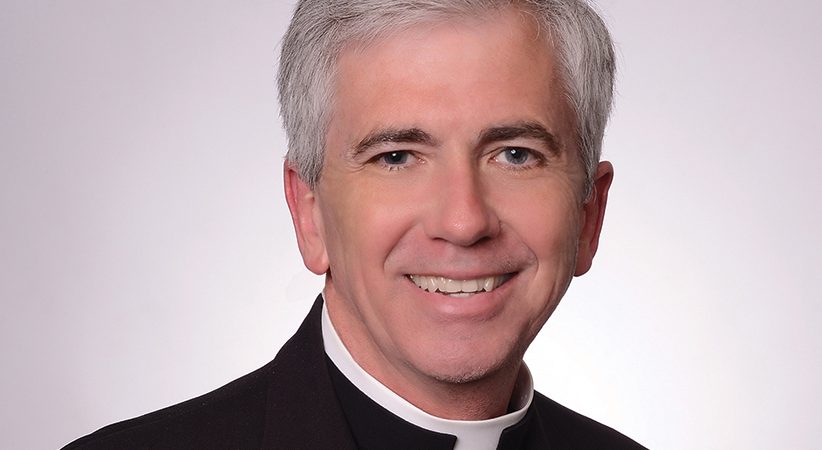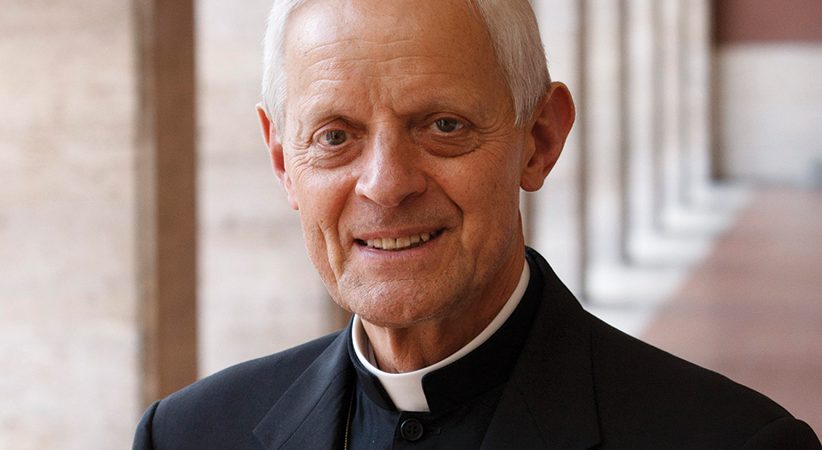Teaching as a Priority
Rethinking your relationship with catechesis
Dr. Jo Ann Paradise Comments Off on Teaching as a Priority
 At your staff meeting the first week of June, I imagine this happened: While people had already begun the dialogue about what Masses were going to be streamed, or someone was asking the question under his/her breath, “Is anyone really going to come back?” the director of the parish’s Ladies of Charity comes running in. “Sorry, I’m late,” she says. “I really didn’t want to miss a word of the discussion around Antiquum Ministerium.” Pause. Would that be so far out of your experience that you can’t even imagine it? How about this? At the last pastoral council gathering, no one heard you suggest that the group frame their conversation about masks in the Catholic principles of solidarity, the Right to Life or the commandments.
At your staff meeting the first week of June, I imagine this happened: While people had already begun the dialogue about what Masses were going to be streamed, or someone was asking the question under his/her breath, “Is anyone really going to come back?” the director of the parish’s Ladies of Charity comes running in. “Sorry, I’m late,” she says. “I really didn’t want to miss a word of the discussion around Antiquum Ministerium.” Pause. Would that be so far out of your experience that you can’t even imagine it? How about this? At the last pastoral council gathering, no one heard you suggest that the group frame their conversation about masks in the Catholic principles of solidarity, the Right to Life or the commandments.
The danger of having read so many articles and listened to so many talks about encounter, accompaniment and knowledge of the Faith is that you may have fallen into numbness. If you are blessed with a parish staff that you send to conventions and diocesan events around this topic, they return enthused and wanting to try new things that don’t seem that new to you. The loss of faith in our culture makes us heartbroken and frustrated. And no one has figured out the golden “bullet” that will solve our problem. But, before you toss this down to read at another time, imagine it was you, not the leader of the Ladies of Charity, who jubilantly comes into the room telling everyone to stop. Yes, you!
It has been six months since Pope Francis instituted the new lay ministry of catechist, with the apostolic letter “Ancient Ministry” (Antiquum Ministerium). It is a good time, Father, to think about your relationship with catechesis. A psychologist once suggested that if you want to see the priorities in your life, consult your checkbook and your calendar. Time in our culture is more precious than money. Where you put your money and time tells the tale of what you deeply value. In spiritual direction, it is a helpful tool for a disciple’s self-examination. I am inviting you to use that tool when looking at your parish priorities, those determined by collaboration among bodies, and your ministerial priorities.
Before we begin asking some in-depth questions about your relationship with the community, let us reach back into our tradition and hear what God has revealed to us about your relationship with the parish.
The Catechism of the Catholic Church expresses the essence of the ministerial priesthood as a sacred power for the service of the people — that is, “service for the People of God by teaching, divine worship and pastoral governance” (No. 1592). The order of service in this passage illuminates a privilege and responsibility toward teaching. All ordained ministers’ first responsibility is to teach. Perhaps “teach” is where we get stuck. Our ever-growing understanding of faith formation leads us today to the term evangelizing-catechesis.
The language that continues to evolve expressing the fullness of understanding to which the Holy Spirit has led us, brings us to the Directory for Catechesis, quoting Evangelii Gaudium, it offers this insight: “This first proclamation is called ‘first’ not because it exists at the beginning and can then be forgotten or replaced by other more important things. It is first in a qualitative sense because it is the principal proclamation, the one which we must hear again and again in different ways, the one which we must announce one way or another throughout the process of catechesis, at every level and moment” (Directory for Catechesis, No. 68; EG, No. 164 ).
If God has revealed through the guidance of the Holy Spirit to the Church that a priest’s first responsibility is to teach, does your parish budget reflect this mandate? To make it quite simple, where is your money going? Where are the parish staffs’ energy, gifts and time going?
Some of you might be saying: “A parish budget? A parish staff? I’d love to have those problems.”
One of the greatest lies of our culture expressed in five words is, “I don’t have enough time.” My Polish great-grandparents were farmers. They had the same 1,444 minutes as I do each day. The difference is that with those same minutes I have so many more choices. We can no longer ignore the call to consciously integrate our time and money with our priorities.
Pope Francis’ apostolic letter “An Ancient Mystery” should stop us in our tracks. Cardinal Rino Fisichella explained official ministry in this way: “The institution of a ministry by the Church is confirmation that the person invested with that charism is performing an authentic ecclesial service to the community.”
I suspect that, with this letter, Pope Francis is asking us to check our parish calendars and checkbooks (or digital banking accounts). Is someone auditing them through the lens of evangelizing catechesis? Perhaps the Church is saying, “That is your ministry, Father.”
In our next article, we will examine evangelizing-catechesis — first steps.
DR. JO ANN PARADISE is a national speaker, writer and thought leader in the field of faith formation.





